An Interview with Mark Evans, on his latest expedition Oman: Jewel of Arabia.
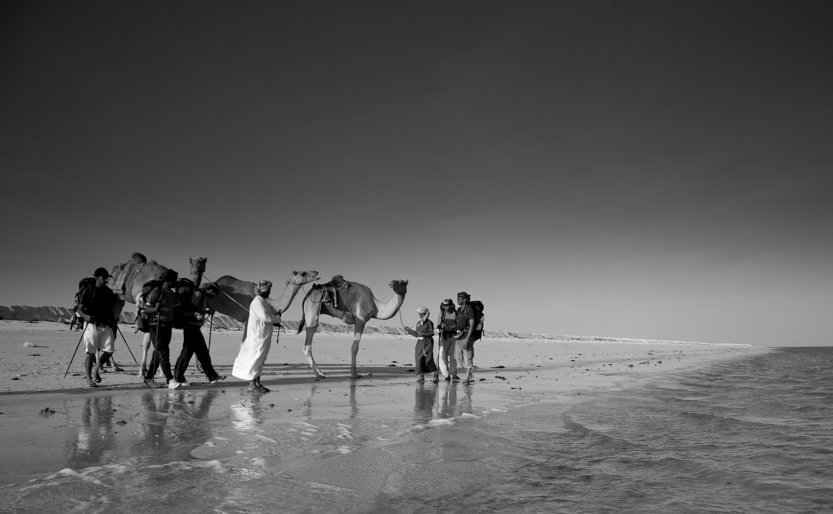
Written by Assia Hamdi
The British Omani Society is honoured to have been able to support and witness the project Oman: Jewel of Arabia go from idea to life. In anticipation of the start of this expedition in January 2025, we sat down with extraordinaire Mark Evans to discuss it.
We were also delighted to support the official UK launch of the expedition at The Royal Geographical Society, London, in November 2024, and host Mark Evans to give a special talk about the project to our members at the Society on 5th December 2024.
For those of you who are interested in following the expedition as it unfolds, please visit the Jewel of Arabia website here. The expedition will commence in Oman 6th January 2025 and the expedition team will be podcasting throughout their journey.
How did the Jewel of Arabia expedition come about?
“So, the expedition came about really, because 8 years ago, with the support of his Majesty Sultan Qaboos, his Royal Highness King Charles, then Prince of Wales, Sheikh Jaran bin Hamid in Doha, and King Salman in Saudi. We had permission to become the first people in 85 years to cross the Rubal Khali. To follow Bertram Thomas's first ever crossing of the biggest sand desert on Earth. And that journey took place in 1930-31, starting in Salalah, and ending in Doha. So, it was really, that journey was the catalyst for this particular journey coming up.”
The Patrons
The Jewel of Arabia Expedition is honoured to have the patronage of His Royal Highness Sayyid Theyazin bin Haitham Al Said, Minister of Culture, Sports and Youth of the Sultanate of Oman and His Royal Highness William, The Prince of Wales.
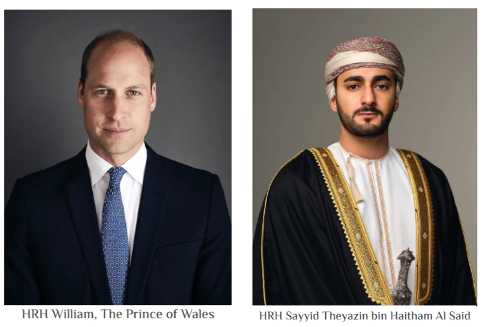
Wow, can you tell us more about this catalyst, Bertram Thomas’ journey?
“When you look at Thomas's maps that were drawn by the Royal Geographical Society using the data that he collected on his journeys, it was quite clear that in 1925, 26, he did a journey for a Muscat to Sharjah, on camel just to check Sharjah's suitability to as a potential landing strip for planes going from UK to India. But then in 1928, he then did a journey from, just south of Rasalhat to Salana down the coastline of Oman, and it was on this particular journey that he discovered the sort of tribal nature of society.
He discovered that people walking with him, with their camels, would stop at a certain point, and he would have to renegotiate fresh camels, fresh guides, and it was that that sort of series of relays that that enabled him 2 years later to successfully cross the Rubal Khali, the empty quarter, which was then occupied by different tribes. That sequence of negotiation, renegotiation enabled him to be successful. To get onto the front page of every newspaper in the world virtually and to be awarded the Royal Geographical Society founders medal by King George, and the Livingstone Society medal by the Royal Scottish Geographical Society.”
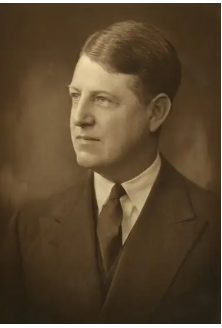
Can you give us the details of your Jewel of Arabia route ?
“We will be following the route taken by Bertram Thomas in 1928, which starts, on the coastline just south of Ras al Had, between Ras al Had and Al Askara, which is where the, Al Said, the Royal Yacht came ashore in 1928 when he landed. And from there, he traveled inland to Banibu Ali, where he met the paramount Sheikh of the area at the time, and then he went all the way down the coast past Duqam, up over onto the escarpment above, Shwai Mir, and round the back of the mountains and over the top and dropping down into Salalah at journey's end.
So that's the route that we'll be following, but using our 4-wheel drive support vehicles to deviate off that route. There is quite a lot actually to capture, some of the great stories of innovative young Omanis doing great work in the biodiversity sustainability field.”
.png)
How have you been able to follow the specific details of Thomas Bertram’s journey so well?
“We have his diary that he typed up thankfully, for me, very helpful he was. You know, he worked through the heat of summer and saved his leave for the cooler winter months when he went on his journeys. So clearly, when he got back after his journey to Salalah, he sat down and typed it up, which is good. But the text is interspersed with big gaps that are all place names. So, I guess he wasn't too sure or too confident about the spelling. But irrespective of that, there are enough place names in there and details to enable us to follow that route quite closely.”
When we hear about the GCC, we often hear about Dubai, Abu Dhabi and more recently Riyadh, but why should people consider Oman?
"Oman has something that is a real game changer, I believe, and a differentiator that gives it that competitive edge over its GCC neighbors, which is its rich and very diverse biodiversity. From juniper forests at 8,000 feet to, you know, beautiful sand sea in the Sharqiya sands, to the turtles that Ras al Had, the incredible sight of Baral Hikman for wading birds, the reed beds in the desert, the humpback whales, the Arabian leopards, and the frankincense. There are so many stories to be told about Oman's rich biodiversity, and the Jewel of Arabia expedition provides us the opportunity to really put the spotlight on incredible places and incredible people, but not through rose tinted glasses."
What is one of your goals at the heart of this expedition?
"One of the purposes of the Jewel of Arabia is to really, make people think a little bit more about the unique natural heritage that Oman has, with a view to, making sure that it has a place in a sustainable future as much for our mental health as for our economy and for our, sustainability."
The Youth are an important part of Oman Vision 2040, what role do they play in this expedition?
"The Youth are absolutely critical to this journey. If you're talking about sustainable future, it's impossible to have that conversation without thinking about young people. In Oman where, you know, such a large percentage of the population are under 30 years old. The youth are absolutely critical, to engaging with sustainable thinking and sustainable action. There are 2 young Omanis walking with me, and those 2 young Omanis in turn have access to thousands of young Omanis every year because Dhikra and Ibrahim are 2 instructors at Outward Bound Oman, the educational charity."
Can you tell our readers about Outward Bound Oman and how it connects with this expedition?
"Outward Bound trains about 4 or 5000 young people a year and has shaped the lives of 27, 28,000 people now since it was created in 2009. So, groups of young people will be joining us on a route from government schools and the scouts and the guides. And we have Oman's most famous female mountaineer to thank for that, who works at the Ministry of Education.
Dhikra and Ibrahim, the 2 instructors who'll be walking with me, they will be going into school as soon as we launch on November 25th. They'll be going into schools and universities pre-expedition talking about the journey. And they'll be going into schools en route, of which there won't be many because it will be in pretty wild country, but there will be some. And then obviously when we get to Salalah and then back to Muscat, there's much that they can share.
But the most important thing perhaps in engaging the youth and making sure that we leave a real legacy here is that once we're on the journey, Dhikra and Ibrahim will be using the photographs we capture every day, the stories, the podcasts to create a 4 day, 3 night, Outward Bound course that will be delivered in Arabic on sustainability and biodiversity going forward.T his is to make sure that this expedition, the concepts of sustainability and the importance of biodiversity impacts thousands of young people moving forward."
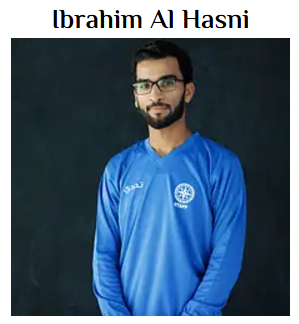
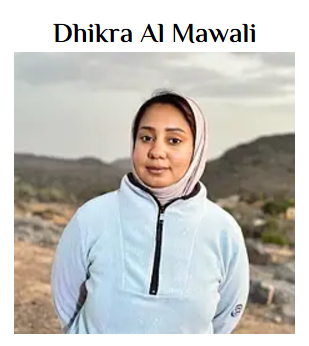
What are some challenges you are expecting?
In terms of challenges, well, the challenges of travel in any, arid environment, really. The biggest risk factor is vehicles. So, you know, we can mitigate do all sorts of things to mitigate that by making sure we've got the right equipment, train drivers, minimizing travel at night, and and carrying the right equipment and driving sensibly. Beyond the vehicles, we have one small, boat trip. And when you go on water, the risk factor goes up quite significantly, and that will be out to Mahoot Island, from a place called Haluf, just north of Duqom.
We're going to Mahoot Island because it's one of the largest expanses of mangroves in Oman, and it's home to a particular species of bird. I think called the called the collared kingfisher. But so we want to go to see the mangroves to talk about the importance of mangroves and the work that's being done to preserve, not just preserve, but replenish the, the stock of mangroves in Oman for coastal protection moving forward. So that boat journey will be something we need to keep an eye on.
So, we'll coincide our journey there with high water to otherwise, it dries out and it's quite a muddy approach. We want to get out of there at high water and back fairly quickly. So beyond, vehicles and water previous expeditions have shown us that sun is your greatest enemy. Remembering to cover up, remembering to cover up the back of your hands as well. You when you're walking using trekking poles, the back of your hands can get absolutely frazzled.
Although it's winter, the sun is still very, very strong. So protecting ourselves from the sun, wind is a big problem. It usually kicks up sort of late afternoon, early evening, so grit and sand in the eye can be really unpleasant.
Other than that, scorpions, snakes, not a lot of activity in the winter because it's too cold, but you know you just have to be aware of them. Without doubt, scorpion activity is much reduced in the winter compared to summer when the desert is alive with them. And that's pretty much, it really.
And I guess the only other challenge we face will be the incredibly overwhelming hospitality of the Omani people. Because as we experienced on our crossing of the empty quarter 8 years ago, it becomes almost a competition to outdo the hospitality of the previous community. So any thoughts we might have of losing weight on this journey will be, you know, we're anticipating putting on quite a bit of weight because I know that there will be so many feasts held in our honor as we travel, on in the footsteps of Bertram Thomas from, from journey start to, journey end in Salalah.
We hope you enjoyed hearing about the Jewel of Arabia expedition as much as we did. The expedition is only getting started and the incredible expedition team and documentary recording team will share stories visually, through audio podcasts and social media connectivity. We can’t wait to follow along the expedition virtually.
Royal Geographical Society Launch Event:
British Omani Society X Mark Evans Recap:
In the News:
William speaks of passion for Oman as he launches expedition | The Independent
UK, Omani princes launch journey across historic Arabian route | Arab News
Prince William sponsors camel trek across Oman in footsteps of 1928 British explorer Bertram Thomas
About Mark Evans
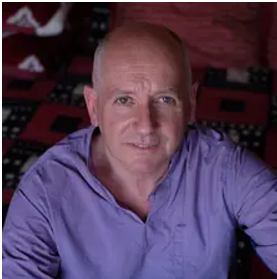
Mark Evans, MBE is a British explorer, field guide, author, motivational speaker and wilderness advocate. He was awarded the MBE in 2011 for his work using outdoor journeys to connect cultures and promote intercultural dialogue between future leaders from the Arab and Western world. He was the founding ED of Outward Bound Oman, and in 2023 was awarded The Medal of Honour by His Majesty Sultan Haitham for his services to Oman.